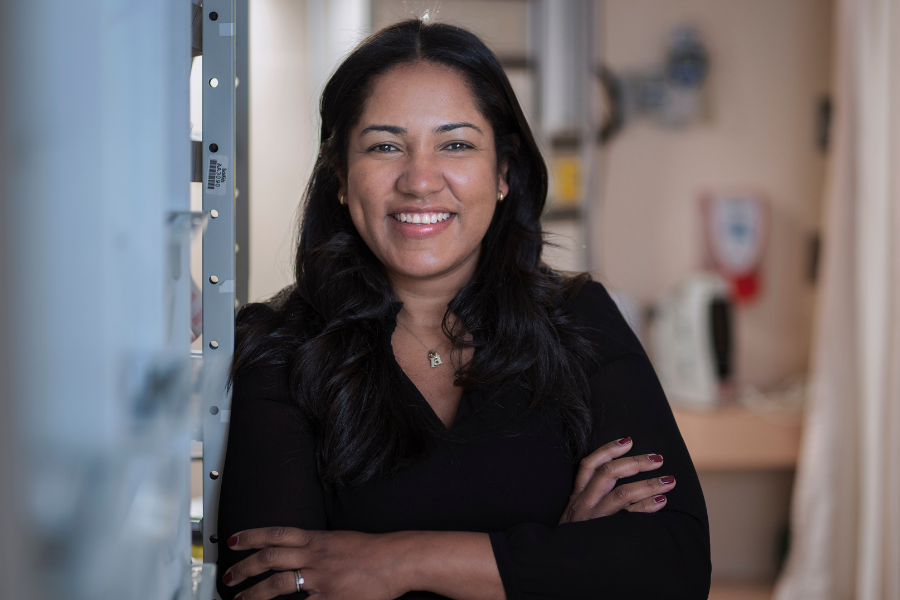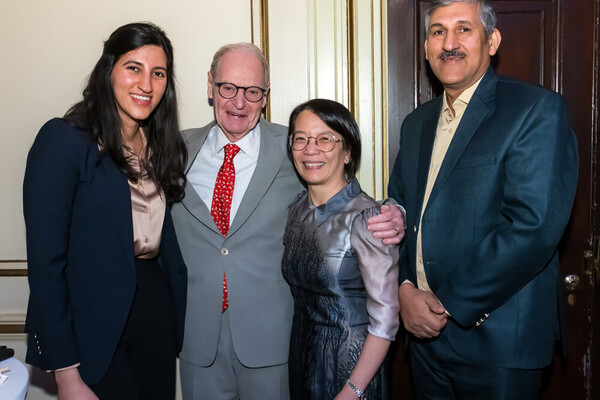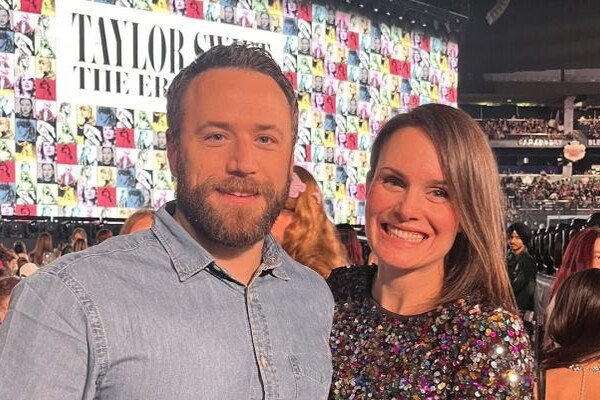Mobile Menu
- Education
- Research
-
Students
- High School Outreach
- Undergraduate & Beyond: Community of Support
- Current Students
- Faculty & Staff
- Alumni
- News & Events
- Giving
- About

Thanks to a unique University of Toronto program that trains learners to bring health-care ideas to market, Joana Dos Santos (PGME Paediatrics & Surgery, MHSc ’18 TRP) is witnessing the impact of her research in real time in the real world.
A medical urologist at The Hospital for Sick Children (SickKids) and an assistant professor of paediatrics at U of T’s Temerty Faculty of Medicine, Dos Santos is an expert in bladder and bowel dysfunction (BBD) in children — a significant yet often underdiagnosed issue in Canada.
Bladder and bowel dysfunction includes several lower urinary tract symptoms and fecal elimination issues, meaning children have little or no control over their bladder and bowel movements. In paediatric urology clinics, BBD is one of the most common reasons for referral, accounting for up to 40 per cent of consultations. Many of these cases are treatable, but around one per cent do not respond to any treatment and are considered refractory. This can lead to a substantial physical and psychosocial burden for affected children and their families.
When Dos Santos joined the U of T faculty in 2015, her goal was to offer alternative therapies for children with refractory BBD, including a treatment known as sacral neurostimulation (SNS). The technology involves implanting a small device that delivers electrical impulses and stimulates the nerves at the base of the spine (sacral nerves). It helps to improve control over bladder and bowel functions by modulating the neural pathways involved in these processes, essentially acting as a "pacemaker" for the bladder and bowels.
“SNS had already been used in many other countries with great results for children who do not respond to any treatments for urinary and fecal incontinence, but was not approved by Health Canada for use in children,” Dos Santos explains. “There was a lot of data on adults and some for children which looked very promising, so I wanted to change the situation here and help my patients.”
To help her achieve her goals, she enrolled in the Translational Research Program (TRP) at Temerty Medicine, a two-year master’s program that teaches participants how to innovate in the challenging health-care space.
Having pitched her case to SickKids, who gave her some protected time and funding to complete her MHSc in Translational Research, she made paediatric access to SNS therapy her TRP Capstone research project. She worked on it with her project team — fellow students Edyta Marcon (MHSc ’18 TRP), now the TRP program director, and Reza Vali (PGME Medical Imaging, MHSc ’18 TRP), a staff radiologist at SickKids.
“My instructors, mentors and everyone else I worked with at the TRP took on the challenge with me,” says Dos Santos. “We spoke to many people: at Health Canada, the SNS manufacturer, and adult urologists. As junior staff, the networking I was able to do with the backing of the TRP and U of T really enhanced my career.”
She also worked closely with the hospital to secure provincial funding for the therapy. In 2017, the Paediatric Sacral Neurostimulation Program was launched at SickKids — Canada's first program of its kind for children.
“Through everyone’s guidance and support, I wrote a proposal for the Ministry of Health as part of my capstone. By the time I was giving my final project defense, my first patient was being fitted with the device,” Dos Santos says.
The current cohort of 10 patients, ranging in age from 8 to 18, have been responding to the treatment with a high success rate and the team recently published a study on some of the cohort in the Canadian Urological Association Journal.
“The impact on quality of life for these kids is huge. They avoid more invasive therapies and procedures, gain more confidence and most importantly, gain some freedom,” says Dos Santos. “Now these kids can play sports and go for sleepovers or overnight camps — all without worrying about urine or fecal leaking, which would have been impossible prior to SNS. It’s incredibly rewarding to see.”
For Dos Santos, the skills, knowledge and confidence she gained from the TRP has transformed her practice. Having learned how to truly assess patient needs, talk to the right stakeholders in a diplomatic way and navigate the system — all with university support — has enabled her to think outside the box and introduce real change.
“As a clinician-scientist, writing manuscripts and doing research is great, but there is no more palpable way than true translation,” she says. “To get that knowledge to directly make an impact on the patients is what I want to do, and I could not have done that without the TRP and the support of SickKids.”


